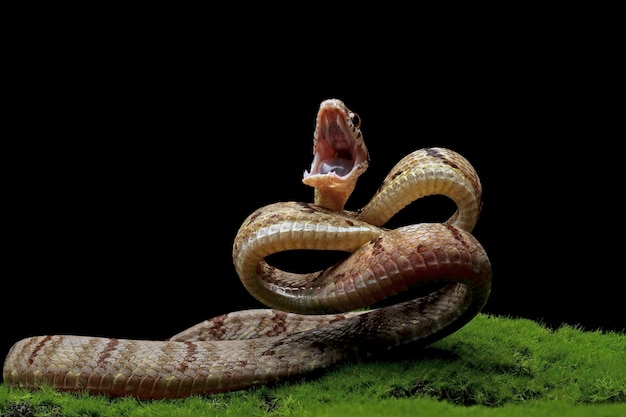Interesting and Incredibly Fascinating Facts about Snakes

Snakes are fascinating creatures that can be found on every continent except Antarctica.
Did you know that snakes have been around for over 100 million years?
Some snake species can be more than 30 feet long, making them the longest reptiles in the world.
Unlike mammals, snakes don’t have eyelids, so they can’t blink. Instead, they have a clear, protective scale over their eyes.
Snakes shed their skin regularly, usually around once a month, to accommodate their growth.
The fastest snake in the world is the black mamba, which can reach speeds of up to 12 miles per hour.
Snakes are carnivorous and have a unique way of swallowing their prey whole by dislocating their jaws.
Despite popular belief, not all snakes lay eggs. Some snake species give birth to live young.
Snakes can be found in a wide variety of colors and patterns, including vibrant hues of green, red, and yellow.
Snakes don’t have external ears or eardrums, but they can still detect low-frequency sounds through their jawbones.
The reticulated python is the longest snake species, capable of reaching lengths of over 25 feet.
Snakes have a specialized organ called Jacobson’s organ that allows them to detect smells in the air.
Some snake species can unhinge their jaws to swallow prey much larger than their own head.
The inland taipan has the most potent venom of any snake, capable of killing a human in just 45 minutes.
Interesting and Incredibly Fascinating Facts about Snakes part 2
Snakes are ectothermic, meaning they rely on external sources of heat to regulate their body temperature.
A group of snakes is called a nest or a den.
Some snake species, like the boa constrictor, can live up to 30 years in the wild.
The king cobra is the longest venomous snake, capable of reaching lengths of up to 18 feet.
Snakes have a specialized sense organ called the vomeronasal organ that allows them to detect pheromones.
The saw-scaled viper is responsible for more human deaths than any other snake species.
Did you know that snakes can swallow prey much larger than their own head, thanks to their flexible jaws?
The green tree python is known for its amazing ability to blend in with its surroundings, thanks to its vibrant green coloration.
Snakes can go several months without eating, especially during the winter months when they hibernate.
The eyesight of most snake species is relatively poor, but they make up for it with their incredible sense of smell.
Some snake species, like the vine snake, have a long and slender body shape that allows them to camouflage among tree branches.
Snakes have no external ears, but they can still sense vibrations in the ground, which helps them detect approaching predators or prey.
The Gaboon viper has the largest fangs of any snake, reaching up to 2 inches in length.
Snakes are incredibly important for ecosystem balance, as they help control rodent populations.
Some snake species, like the black-tailed rattlesnake, have a distinct rattle at the end of their tails that they use as a warning signal.
Snakes can swim, climb trees, and even glide through the air, as some species have a skin membrane that allows them to glide short distances.
The egg-eating snake has a unique adaptation that allows it to eat only bird eggs by having specialized teeth and a flexible jaw.
The reticulated python can consume prey that is three times larger than its own head.
Some snake species, like the sidewinder, have adapted to deserts by moving in a unique sideways motion, leaving distinct tracks in the sand.
Some snake species, like the hognose snake, have a defensive behavior where they play dead by rolling onto their backs and sticking out their tongues.
The anaconda is one of the heaviest snakes in the world, capable of weighing over 500 pounds.
Snakes have a unique way of smelling their environment by using their forked tongues to collect scent particles and transfer them to their vomeronasal organ.
The boomslang snake has a venom that affects blood clotting, often causing internal bleeding and a slow, painful death.
There are over 3,000 known species of snakes, each with their own unique characteristics and adaptations.
Some snake species, like the black-necked spitting cobra, can accurately spit venom into the eyes of potential threats or prey, causing temporary blindness.
Snakes have a specialized sense called thermoreception, which allows them to detect heat and locate warm-blooded prey.
The Malayan krait has one of the deadliest venom of any snake, causing respiratory failure and leading to death if left untreated.
Some snake species, like the rattlesnake, have heat-sensing pits on their faces, allowing them to detect warm-blooded animals in complete darkness.
The Eyelash Viper gets its name from the unique scales above its eyes that resemble long eyelashes.
Snakes are one of the few species that were able to adapt and thrive even after the mass extinction event that wiped out the dinosaurs.
While snakes may be intimidating to some, they play an important role in maintaining a balanced ecosystem and should be appreciated for their unique qualities.

